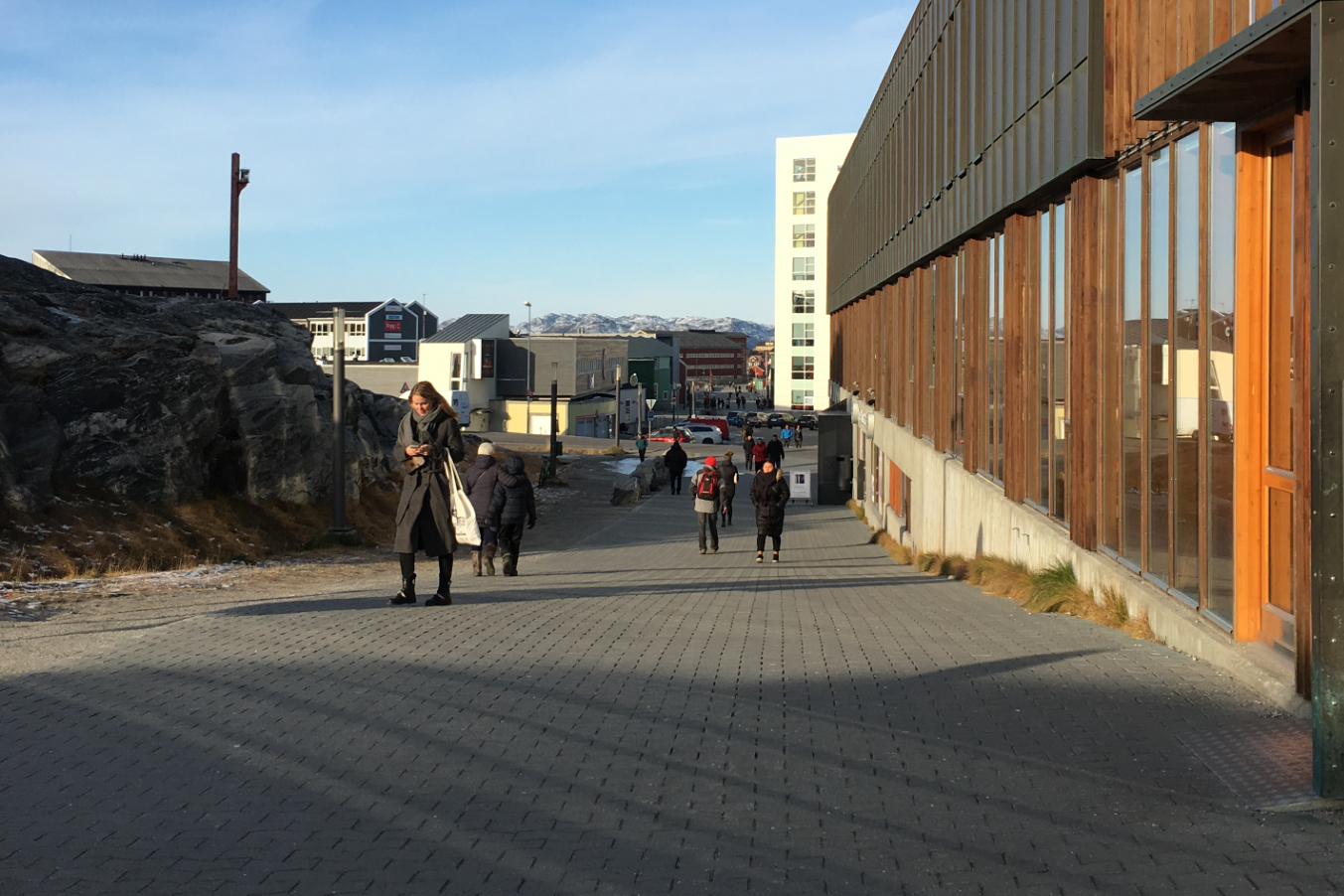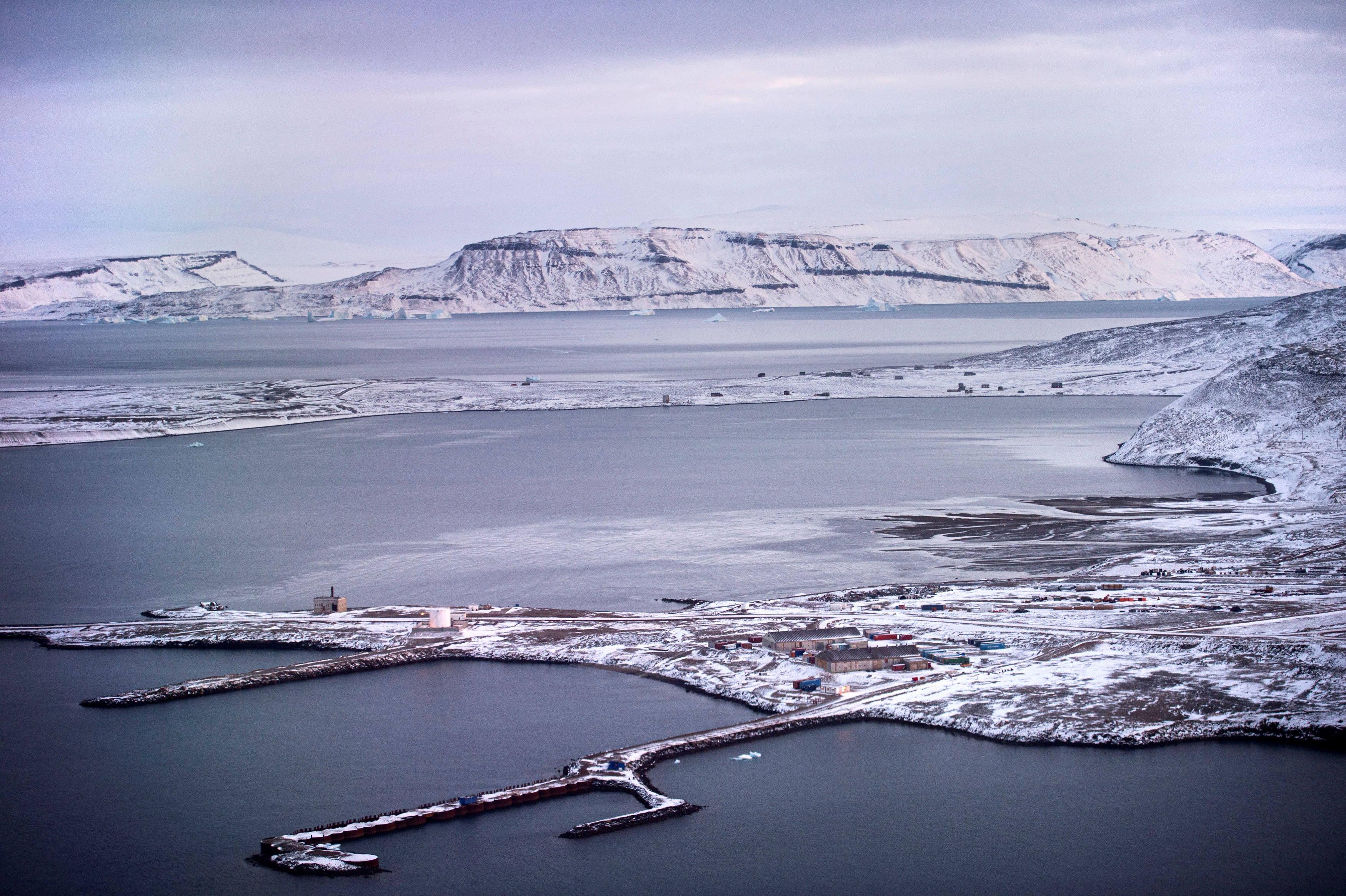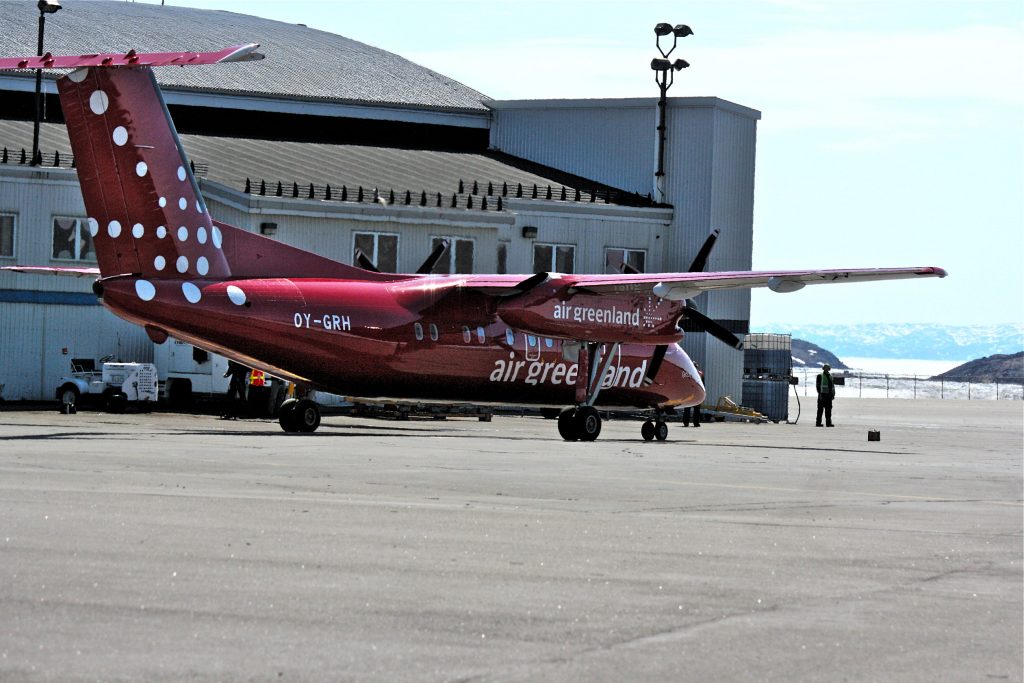A first-ever foreign policy opinion poll in Greenland shows support for more cooperation with US, Denmark
Opinions also favored closer ties to Canada, the Arctic Council and NATO, but were divided on China.

We know from recent headlines that China has an interest in expanding economically in Greenland and of course, many will remember when former U.S. President Donald Trump thought of buying the entire island.
The U.S. and the diverse arms of its defense forces have strong opinions about Greenland, too. In fact, millions of people around the world have strong opinions about Greenland, and especially on how the Greenlanders ought to protect their environment, polar bears included. Just last week, for example, reacting to an ongoing public debate about a potential rare earths and uranium mining project, more than 140 NGOs from around the world signed an appeal to the leadership in Greenland, Denmark and the EU to stop any form of large scale mining and any future extraction of oil and gas. They called instead for an Arctic sanctuary, based on the model known from Antarctica.
This is, to put it mildly, not in line with the current political mainstream in Greenland.
It’s interesting to think that in this vast and consequential ocean of opinions about Greenland, there has been, until now, basically no sight of what the Greenlanders themselves think about the rest of the world.
Greenland’s political leaders have of course long taken part in international discourse. They pulled Greenland out, for instance, of the European community several decades before the Britons thought of Brexit and they regularly voice their opinions on climate change and other current issues. We know largely what the leadership in Nuuk thinks, but the opinions on foreign policy and security of the 57,000 ordinary people who live in Greenland have so far been largely uncharted.
Luckily, this is now changing. On Thursday last week, the first ever survey of public opinion on foreign relations and security in Greenland was presented at Ilisimatusarfik, the University of Greenland, in an online launch. The survey is based on recent telephone interviews with a representative sample counting 704 people within the normal distribution of gender, age, education, profession, and place of residence in Greenland.
Because the authors in Greenland have little Greenlandic, survey questions were translated into Greenlandic before being put to respondents by telephone, and answers were then translated back into English. The intricate question of how much may have been lost in translation was subject to some debate on Thursday, with authors explaining that serious efforts were made to avoid errors and that work on this dilemma continues.
More US, thanks
Thanks to this new survey, here is some of what we know now: 69.1 percent of those asked think that Greenland should cooperate more closely with the U.S. That is important, because it indicates strong public support for a course of action that the political establishment in Greenland has pursued for years and which is now met with by renewed U.S. interest in Greenland.
Greenland opened a diplomatic office in Washington back in 2014, and in April, the U.S. reopened its consulate in Nuuk.
Today U.S.-Greenland relations are no longer only about Thule Air Base, but also about direct U.S. support for civil society and, most recently, a promise from Washington of direct talks on trade, credit and other economic linkages. Noticeably, these talks are to take place with no participation from Denmark, even if Copenhagen still holds sovereignty over Greenland. They will follow in the wake of the first ever U.S. support package for Greenland’s civil life, to the tune of some $12 million.

The Pentagon is working to increase the U.S. military presence in Greenland. Last year, to Greenland’s immense satisfaction and after six years of pressure from Nuuk and Copenhagen, a serious dispute over a maintenance-contract for Thule Air Base was put to rest by former U.S. Secretary of State Mike Pompeo, who in effect cleared any remaining obstacles for increased cooperation. This heralds a whole new level of U.S.-Greenland relations. And we now know that a solid majority in Greenland seem in favor of these developments.
China: yes and no
On China, 46.6 percent of those asked in Greenland say they want less cooperation, but 38.7 say they want more. And while 67.2 percent are negatively inclined towards more Chinese investments in Greenland, 52.8 percent find China’s growing international role positive, compared to 47.2 who find it negative.
This paints a picture almost as complex as reality.
Greenland’s export of fish and shrimp to China has boomed in recent years, to the benefit of its economy (even if it is currently frozen because of coronavirus concerns). The government in Nuuk has worked hard to attract Chinese tourists and Chinese investment in the mining sector; some has already trickled in, but Nuuk wants more. A Greenland premier first visited Beijing in 2005, and many delegations from Nuuk have since attempted to woo more Chinese interest. Just last year, Naalakkersuisut, the self-rule government in Nuuk, decided to open a diplomatic office in Beijing.
The U.S. and Denmark are jittery that China will use any economic leverage in Greenland to win political influence or to build an intelligence presence, but Nuuk has insisted on its right to trade with all. At the launch of the new survey on Thursday, local politicians reiterated this stand. Aleqa Hammond, who was until this week chair of the Foreign Policy and Security Committee of Greenland’s parliament, stressed that Greenland has no real powers over security policy, since this is a prerogative of the Danish government, and that Greenland should instead focus on its mandate to strengthen trade relations: “We cannot solve questions that should really be dealt with by the Danish foreign minister. We must look after our economy,” she said.
General elections are to be held in Greenland in April, but the desire of Nuuk to establish a diverse band of partners has a long history and is likely to live on whether Hammond is reelected or not.
More Denmark, thanks
In Copenhagen, where I am based, the government will be pleased to learn that 68.2 percent of those asked for the new survey want more cooperation with Denmark.
The Danish government is putting a lot of effort into improving relations with Greenland, including by allowing Greenland to exploit more expansively its powers to negotiate and sign deals with other countries sign deals with countries on matters over which jurisdiction has already been devolved to Nuuk. This satisfies a longstanding desire in Nuuk to handle more of its own relations with other nations. In the long run, Copenhagen hopes to persuade more Greenlanders not to pursue independence, and the new survey will look promising in this perspective.
To outsiders, perhaps, the fact that 68.2 percent of the respondents want to cooperate closer with Denmark may appear paradoxical. Other recent surveys have documented strong majority support for the vision of an independent Greenlandic state. However, this is not necessarily a contradiction. Many backers of Greenland’s independence suggest that cooperation with Denmark will only thrive after secession, since at that point it will be carried by Greenland’s own free will and not by present day post-colonial structures.
More Arctic cooperation, thanks
The Arctic Council will probably be thrilled to learn that 87 percent of the respondents in Greenland want more cooperation with the Council. This could well be read as tribute to the structure of the Council, where the Arctic peoples are still listened to, even if China and other non-Arctic state observers demand more attention. The authors of the survey recalled on Thursday a discouraging survey from 2015 by the Gordon Foundation in Canada which showed very little recognition of the Arctic Council in most Arctic states.
And speaking of Canada: 85 percent of those asked for the new survey indicated that Greenland should cooperate more with Canada. This is indeed thought-provoking. The authors of the survey do not offer their own interpretation, but my guess is that many respondents might have been thinking more about Nunavut, and the Inuit community there and elsewhere in Canada, rather than of Canada as a whole. If I am right, this might disturb a few influential people in Nuuk.
Greenland’s leadership has lost quite a bit of its former focus on the Inuit cultural linkages across the waters between Greenland and Canada. Today the line of sight from Nuuk is more rigidly fixed on state building and high politics and has Nuuk cut down on its financial support for the local chapter of the Inuit Circumpolar Council.
Learning of the new figures, I recalled the Arctic Winter Games in Nuuk in 2016, where some 2,000 youth, primarily from Greenland and the Arctic peoples of North America, met for sports, including traditional Arctic sports. The tangible affinities and closeness exhibited then now seem to square nicely with the figures from the new survey.

For those interested in Arctic security, it will be noteworthy that 64 percent of the survey respondents found the current security threat “low” or “normal,” even if it is no longer news in Greenland that the Arctic security situation is rapidly changing. Foreign warships visit more frequently, and — as Justus Hansen of Inatsisartut’s Foreign Policy and Security Committee told Thursday’s audience — rumors of Russian submarines along Greenland’s east coast are persistent. We now know that this has not translated into any widespread sense of increased threat in Greenland. As the authors of the survey write in their analysis, there are amply supplies of other worries: “It is the economic situation, unemployment and rising living costs that are in the forefront, while climate change, immigration, crime, military threats in the Arctic and the like are not seen as any major threat towards the country.”
Despite the lack of perceived threats, NATO scores high. 75.5 percent of all respondents said that NATO is a positive alliance, while only a miniscule 2.8 percent said the opposite. This seems to certify another longstanding claim by the proponents of Greenland’s independence: Come what may, Greenland will remain a steadfast security partner within the NATO alliance. Like Iceland, one could add. Iceland is a staunch NATO ally, although it has no standing military of its own, and many in Greenland find this model worthy of emulation. This trend is reflected in the new survey: 70 percent answered “no” when asked if Greenland should have its own military.
More surveys, thanks
The survey is financed by the Germany’s Konrad Adenauer Stiftung Foundation, which is particularly keen to learn of opinions on the EU. Appetite for membership for membership of the EU is generally low in the North Atlantic, where many fear that European fishing fleets will come to dominate vital resources. In the new survey from Greenland, however, a surprising 40 percent indicated that they would vote yes if a referendum on membership was to be held. This seems, however, an unlikely scenario in Greenland for the present; it is not a subject of any broader public debate.
The new survey is authored by researchers Maria Ackrén and Rasmus Leander Nielsen at Ilisimatusarfik, the University of Greenland. They used as point of departure a similar survey conducted in Norway in 2020 by Konrad Adenauer Stiftung. A third such survey is now underway in Iceland.